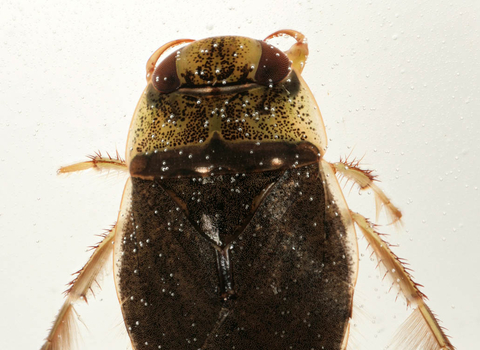
Saucer Bug ©Malcolm Storey
Saucer bug
An underwater predator, the Saucer bug uses its front pincer-like legs to catch its prey. It can be found at the bottom of muddy, weedy ponds; but handle with care - it can inflict a painful bite!

Saucer Bug ©Malcolm Storey